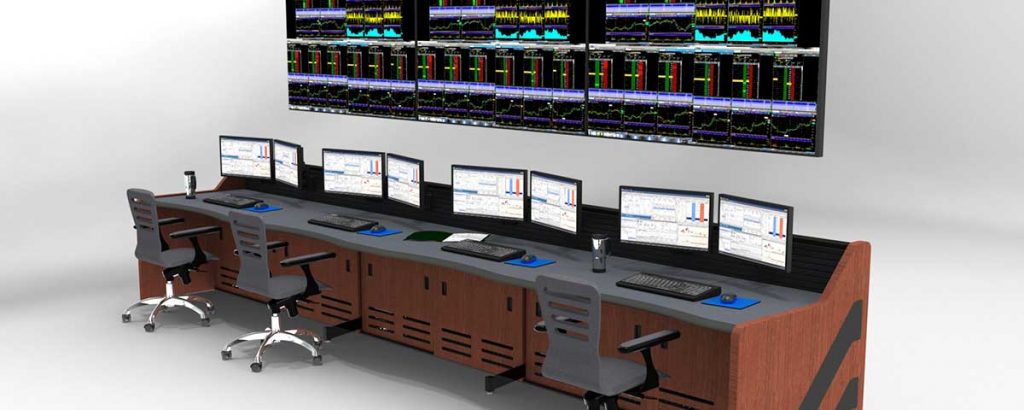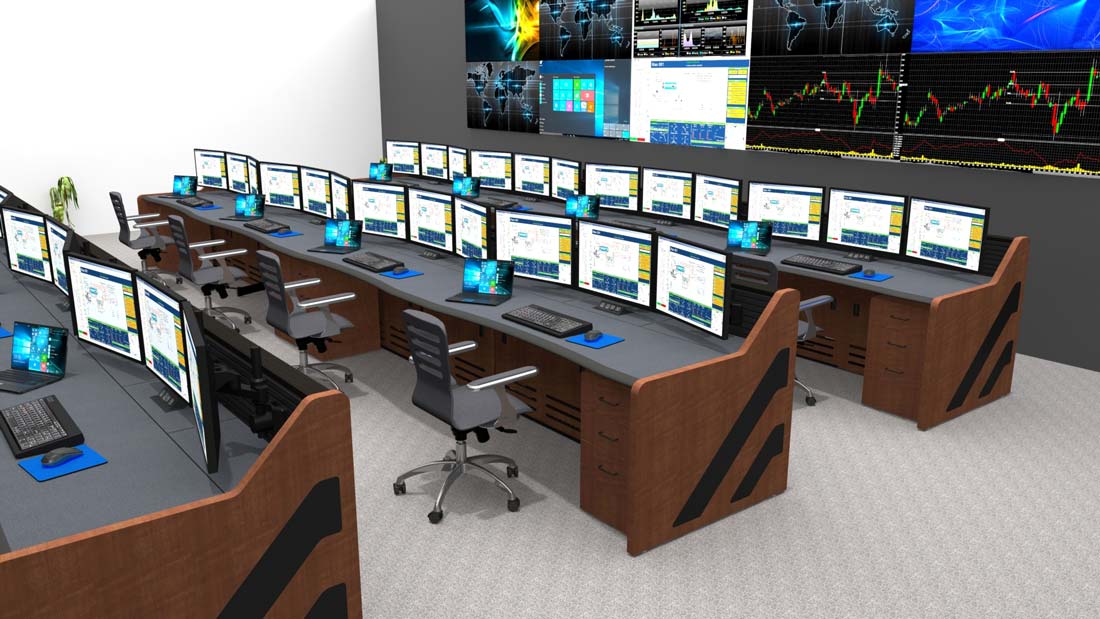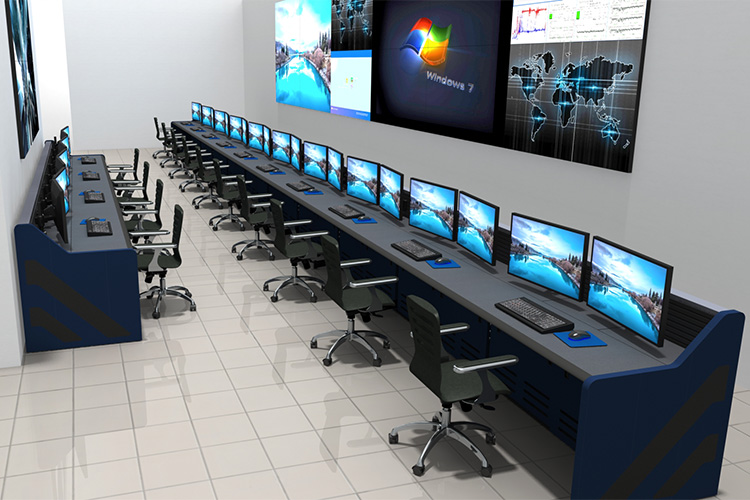What is a SCADA Control System?
SCADA refers to a control system that consists of a specific number of RTUs (remote terminal units) that collects field data and sends it back to a master station. This master station will then display all of the acquired data for the operation, as well as allowing the operator to perform any remote control tasks that are necessary. This data is typically real-time data which offers accurate and timely data that is essential for the optimal operation of the process and the plant. It is reliable and efficient, as well as making the plant a much safer place.
One of the important things to know about managed SCADA software and mission communications protocols is that it can be a very complicated process that requires using the right technology and properly training any operator responsible for this system. These supervisory systems collect data and can be as complex or as simple as your company needs it to be.
This system was developed as a universal way to remotely access various control modules and control processes at multiple sites. When you start getting into larger scale Mission SCADA systems, they can look a lot like DCS (Distributed Control Systems) as far as function goes. However, SCADA systems use a variety of different approaches of interfacing with your mission-critical facility. Here are some things to know about this process that uses remote terminal units (RTUS).
- The process of data acquisition will typically begin at the PLC or RTU level, utilizing equipment status reports and instrumentation readings.
- Status reports on the equipment are sent to the mission SCADA level 2 as it is required to.
- Data gets compiled as to allow the control room operator using the Human Machine Interface (HMI) can make to adjust or even override the PLC/RTU controls as needed.
- Data may also be sent out in order to be analyzed for auditing purposes.
There are a few different processes that SCADA is used for, including:
- Industrial processes such as fabrication, power generation, and manufacturing.
- Both private and public infrastructure processes such as waste water collection, water treatment/distribution, and oil/gas pipelines.
- Facility processes including space stations, airports, and ships.
You should know that there are some security vulnerabilities that come with using SCADA control systems, so you need to do a risk assessment to see what these risks are to mitigate them.
Benefits of SCADA – What Does SCADA Stand For?
- What does SCADA stand for? (Supervisory Control and Data Acquisition)
- Improved operations, meaning improved savings through better efficiency.
- Increases your productivity
- Protects equipment
- Supervisory systems improves safety
- Safeguard from potential failure of the system
- Control equipment promotes energy savings
- Quicker data acquisitions, improving the invoicing process
Information on DCS Control – What Does DCS Stand For?
DCS Control (Distributed Control System DCS) is a computerized control system that is used by a process or plant with a mass amount of control loops. Autonomous controllers get distributed throughout this type of system, however this can be controlled by a central operator. This is very different than a system that requires centralized controllers. What’s good about DCS is that it can reduce the installation costs and increase your reliability since it localizes the control functions near the plant with remote supervision and operation.

Rendering of a control room using SCADA & DCS Systems
DCS Control systems are typically used for manufacturing systems that are batch-oriented or are continuous processes. Applications include:
- Chemical plants
- Water treatment plants
- Agricultural applications
- Food processing
- Nuclear power plants
- Data Centers
- Command Centers
- Control Rooms
- Industrial Plants
- Remote Sites
With the newer DCS systems, there are some amazing technologies that can better optimize the system. With HMI software, there are mobile interfaces and controls, which can improve the remote access. There are also wireless systems and protocols that can offer access no matter where you are.
Major Differences Between SCADA and DCS
This section will take a brief look at the major differences between SCADA and DCS.
SCADA Control Systems
- Data Oriented: The software used for modern SCADA systems is specifically designed to display information, such as why your alarm went off.
- Driven by Events: HMI SCADA systems operate and will wait for a specific event to take place, then will respond as needed.
- Database: Databases are necessary because they aren’t always connected to an I/O system and they rely on information.
DCS Control Systems
- Process Oriented: DCS systems performs its tasks according to a pre-determined sequence that has been input into the control system.
- Regular Scanning: This is a state-driven system that will regularly check the processes, transmitting anything that is necessary to the operator when required.
- I/O Systems: Since DCS offers live updates for the controller, it must be continuously connected to the I/O systems.
- Database: There is no database that is required for a DCS system, since these are always connected to the I/O system.
As you can see, there are quite a few differences between these two options. These differences are important to know because every industry has their own needs and purpose built hardware, so you need to know which one will monitor and control best for you. For instance since the SCADA is event-driven and only triggers when something happens, you have a decreased processing load on its host. Carefully consider these options to decide on the right process automation for your company.
For more information on Inracks‘ SCADA and DCS systems, please contact us here or call us at 800-346-7521.







